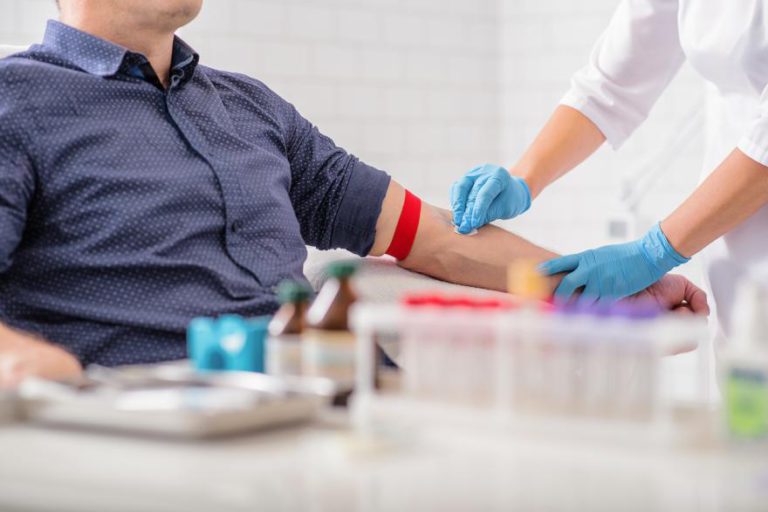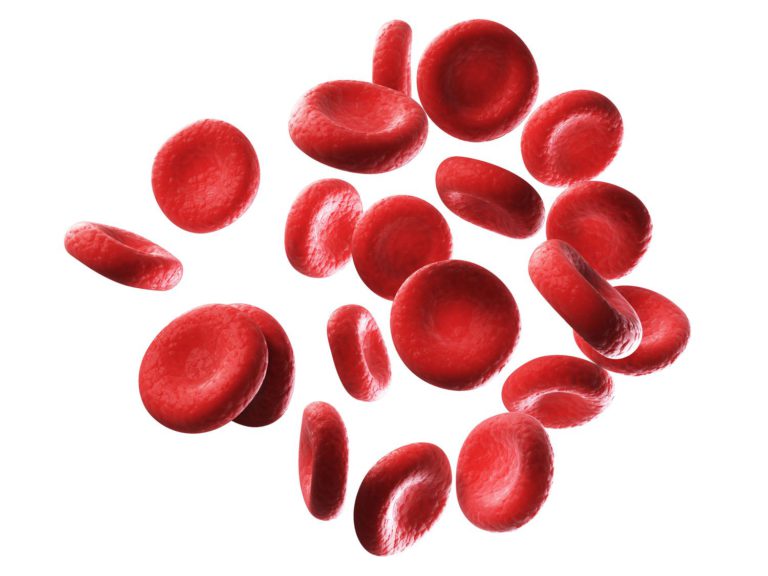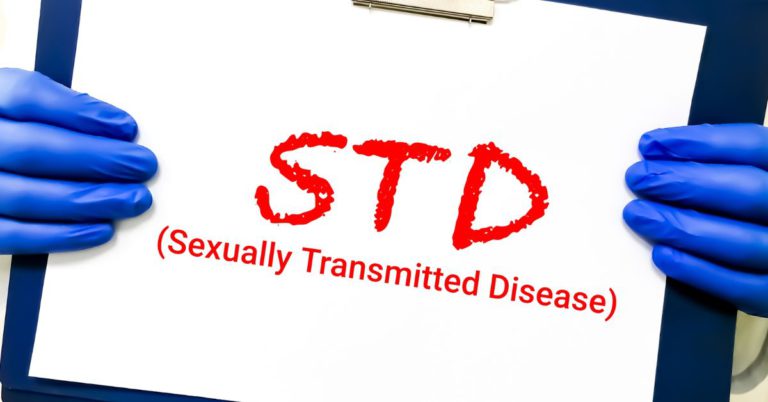Herpes Overview
Let’s talk about herpes – a common sexually transmitted infection caused by the herpes simplex virus (HSV). You may have heard that there is no cure for herpes, but don’t worry – effective treatment options are available to manage outbreaks and reduce transmission risk. In this blog post, we’re going to answer the burning question on everyone’s mind: is herpes curable? But first, let’s start with some basics, like the different types of herpes viruses, how they’re transmitted, and common symptoms to watch out for. We’ll also dive into available treatment options, tips for managing outbreaks and reducing transmission, and how to cope with the emotional and psychological impact of herpes. And if you’re wondering how to get tested for herpes, we’ve got you covered. At Speedy Sticks, we offer confidential and convenient STI screening services, including at-home STI testing. No need to worry about finding an STI screening near you – our services are available nationwide. So sit back, relax, and let’s tackle all your burning questions about herpes together.What is Herpes?
Herpes is a viral infection caused by the herpes simplex virus (HSV). There are two types of HSV:HSV-1
This type typically causes cold sores or fever blisters around the mouth, but can also cause genital herpes.HSV-2
This type primarily causes genital herpes, but can also infect the mouth and cause oral herpes. Herpes is a common sexually transmitted infection (STI), and it can also be spread through skin-to-skin contact during sexual activity, even if there are no visible symptoms present. Once infected, the herpes virus remains in the body for life and can cause recurrent outbreaks of symptoms. Symptoms of herpes can include:- Sores, blisters, or ulcers on or around the genitals, mouth, or anus
- Pain, itching, or burning in the affected area
- Flu-like symptoms, such as fever and swollen glands
Types of Herpes Viruses
There are several types of herpes viruses, but the two most common are herpes simplex virus type 1 (HSV-1) and herpes simplex virus type 2 (HSV-2), which can both cause genital herpes. Other types of herpes viruses include:Varicella-zoster virus
This virus causes chickenpox and shingles.Epstein-Barr virus
This virus can cause infectious mononucleosis (also known as mono) and is also linked to certain types of cancer.Cytomegalovirus
This virus is typically harmless but can cause serious health problems in people with weakened immune systems. While each type of herpes virus is different, they all share the ability to remain in the body for life once a person is infected. This means that recurrent outbreaks of symptoms can occur, and it’s important to manage symptoms and seek treatment as needed. At Speedy Sticks, we offer at-home STI testing options that include herpes testing, so you can take control of your sexual health and get the care you need.
Herpes Transmission and Symptoms
Transmission
Herpes is a highly contagious virus that can be transmitted through skin-to-skin contact, including sexual contact. The virus can be spread even if there are no visible symptoms present, and it can be contracted through oral, vaginal, or anal sex.Symptoms
The symptoms of herpes can vary depending on the individual and the type of virus involved. Some people may not experience any symptoms at all, while others may have painful sores or blisters in the affected area. Common symptoms of genital herpes include:- Painful blisters or sores around the genitals or anus
- Itching or burning in the genital area
- Pain during urination
- Flu-like symptoms, such as fever and headache
- Cold sores around the mouth or on the lips
- Swollen gums or lymph nodes in the neck
- Sore throat
Herpes Treatment Options
Antiviral Medications
Antiviral medications are the most commonly prescribed treatment for herpes. They work by reducing the severity and duration of outbreaks, as well as the frequency of recurrence. Some examples of antiviral medications include acyclovir, valacyclovir, and famciclovir. These medications can be taken orally, topically, or by injection. – How They Work Antiviral medications work by inhibiting the replication of the herpes virus. They block the enzymes that the virus needs to reproduce and spread to other cells in the body. – Types of Antiviral Medications Available There are several types of antiviral medications available for treating herpes, including: – Acyclovir (Zovirax) – Valacyclovir (Valtrex) – Famciclovir (Famvir) – Penciclovir (Denavir) – Docosanol (Abreva) – Effectiveness Antiviral medications can help reduce the severity of symptoms and the frequency of outbreaks. However, they are not a cure for herpes, and the virus may still be transmitted even when symptoms are not present.Home Remedies and Lifestyle Changes
Home remedies and lifestyle changes can also be helpful in managing herpes outbreaks and reducing their frequency. Some examples include: – Managing Outbreaks with Self-Care Self-care measures, such as keeping the affected area clean and dry, wearing loose clothing, and avoiding triggers that can cause outbreaks, can help manage symptoms and reduce the severity of outbreaks. – Dietary Changes Some studies suggest that a diet high in lysine and low in arginine can help reduce the frequency and severity of herpes outbreaks. Foods high in lysine include fish, chicken, beef, and dairy products, while foods high in arginine include nuts, seeds, and chocolate. – Stress Reduction Techniques Stress can weaken the immune system and trigger herpes outbreaks. Practicing stress reduction techniques, such as meditation, yoga, and deep breathing exercises can help manage stress and reduce the frequency of outbreaks.Experimental Treatments
Research is ongoing to find a cure for herpes, and several experimental treatments are being investigated, including:Herpes Vaccines
Researchers are working on developing vaccines that can prevent or reduce the severity of herpes infections. Several vaccines are currently in clinical trials, including a therapeutic vaccine that is designed to boost the immune system’s response to the virus.Gene Editing
Gene editing technologies, such as CRISPR-Cas9, are being investigated as a potential cure for herpes. These technologies can be used to target and eliminate the herpes virus from infected cells.Innovative Therapies
Several innovative therapies are being developed, including oncolytic virotherapy, which uses viruses to target and destroy cancer cells, and photodynamic therapy, which uses light to activate a drug that kills infected cells.Alternative Therapies
Alternative therapies, such as essential oils, herbal remedies, and supplements, are sometimes used to treat herpes, although their effectiveness has not been scientifically proven. Some examples of alternative therapies include:Alternative Therapies
Alternative therapies, such as essential oils, herbal remedies, and supplements, are sometimes used to treat herpes, although their effectiveness has not been scientifically proven. Some examples of alternative therapies include:Is Herpes Curable?
While there is currently no cure for herpes, there are medications available that can help manage symptoms and reduce the frequency and severity of outbreaks. Antiviral medications such as acyclovir, valacyclovir, and famciclovir can help shorten the duration of outbreaks, reduce the severity of symptoms, and lower the risk of transmission to others. It’s important to note that even with treatment, herpes can still be transmitted to sexual partners, so practicing safe sex is crucial.Conventional Medical Treatments for Herpes
Conventional medical treatments for herpes typically involve antiviral medications such as acyclovir, valacyclovir, and famciclovir. These medications can help reduce the duration and severity of outbreaks and lower the risk of transmission to others. They are typically taken orally and work by preventing the virus from multiplying. In some cases, topical medications such as creams or ointments may also be prescribed to help soothe symptoms. It’s important to note that while these medications can help manage symptoms, they do not cure herpes and outbreaks may still occur even with treatment. Additionally, some people may experience side effects from these medications, such as headache, nausea, and diarrhea.Alternative and Complementary Therapies for Herpes
While conventional medical treatments for herpes can help manage symptoms, some people may prefer to explore alternative or complementary therapies as well. It’s important to note that these therapies have not been scientifically proven to cure or prevent herpes, and it’s always a good idea to consult with a healthcare provider before trying any new treatment.1. Dietary Changes
Some studies have suggested that certain dietary changes may help manage herpes symptoms. For example, foods high in the amino acid lysine (such as fish, chicken, and legumes) and low in arginine (such as nuts and chocolate) may be helpful in reducing outbreaks.2. Supplements
Certain supplements may also be beneficial in managing herpes symptoms. These include:- L-lysine: An amino acid that may help reduce the frequency and duration of outbreaks.
- Zinc: A mineral that supports immune system function and may help reduce outbreaks.
- Vitamin C: An antioxidant that may help boost immune system function.
3. Stress Reduction
Stress can trigger herpes outbreaks in some people, so stress reduction techniques may be helpful in managing symptoms. Techniques such as meditation, deep breathing, and yoga may be beneficial.4. Topical Treatments
Some people may find relief from herpes symptoms by using topical treatments such as aloe vera, tea tree oil, or lemon balm. These treatments may help reduce pain and inflammation, although more research is needed to confirm their effectiveness.5. Acupuncture
Acupuncture, a traditional Chinese medicine practice that involves inserting thin needles into specific points on the body, may also be helpful in managing herpes symptoms. Some studies have suggested that acupuncture may help reduce the frequency and severity of outbreaks. Once again, it’s important to note that these alternative and complementary therapies have not been scientifically proven to cure or prevent herpes, and should not be used as a substitute for conventional medical treatments. Consulting with a healthcare provider is always recommended.Is Genital Herpes Curable?
Unfortunately, there is no cure for genital herpes. Once a person is infected, the virus stays in their body for life. However, there are treatments available to manage and reduce the frequency and severity of outbreaks. It is important to note that even when symptoms are not present, the virus can still be transmitted to sexual partners. Therefore, it is important to practice safe sex and disclose your herpes status to your partners.Managing Herpes Outbreaks and Reducing Transmission Risk
If you are diagnosed with herpes, it’s important to manage outbreaks and take steps to reduce the risk of transmission. The following tips can help:
- Take antiviral medication: Antiviral medication can help reduce the duration and severity of outbreaks, as well as reduce the risk of transmission.
- Practice safe sex: Using condoms or other barrier methods can help reduce the risk of transmission during sexual activity.
- Avoid sexual activity during outbreaks: Herpes is most contagious during outbreaks, so it’s important to avoid sexual activity during this time.
- Keep the affected area clean and dry: Keeping the affected area clean and dry can help prevent secondary infections and reduce the risk of transmission.
- Manage stress: Stress can trigger outbreaks, so managing stress through techniques such as meditation, exercise, or therapy can help reduce the frequency of outbreaks.
- Be open and honest with sexual partners: It’s important to have open and honest communication with sexual partners about your herpes diagnosis and to discuss ways to reduce the risk of transmission.
Coping with the Emotional and Psychological Impact of Herpes
Dealing with the emotional and psychological impact of herpes can be challenging for many people. A herpes diagnosis can cause a range of emotions, including fear, shame, anger, and depression. It is important to remember that you are not alone and that there are resources available to help you cope. Here are some strategies that may be helpful in coping with the emotional and psychological impact of herpes:- Seek support from friends and family: Talking to friends and family about your diagnosis can help you feel less alone and provide emotional support.
- Join a support group: There are many support groups available both in-person and online for people with herpes. Joining a support group can help you connect with others who are going through similar experiences and provide a safe space to share your feelings.
- Consider therapy: A mental health professional can provide additional support and help you develop coping strategies for managing your emotions.
- Practice self-care: Taking care of your physical and emotional needs can help reduce stress and improve your overall well-being. This can include getting enough sleep, exercising regularly, eating a healthy diet, and engaging in activities that bring you joy.
- Educate yourself: Learning more about herpes and its treatment options can help you feel more in control of your diagnosis and reduce anxiety about the future.
Conclusion: Taking Control of Your Herpes Management
In conclusion, herpes is a common and highly stigmatized viral infection that affects millions of people worldwide. While there is currently no cure for herpes, medical treatments can help manage symptoms and reduce the risk of transmission. At-home herpes testing is a convenient and discreet option for those who want to get tested, and Speedy Sticks offers a variety of options for STI screenings, including at-home testing and telehealth consultations with healthcare providers. If you are living with herpes, it’s important to remember that you are not alone, and there are many resources and support networks available to help you manage the physical and emotional aspects of this condition. By taking proactive steps to manage your herpes, you can lead a healthy and fulfilling life.







